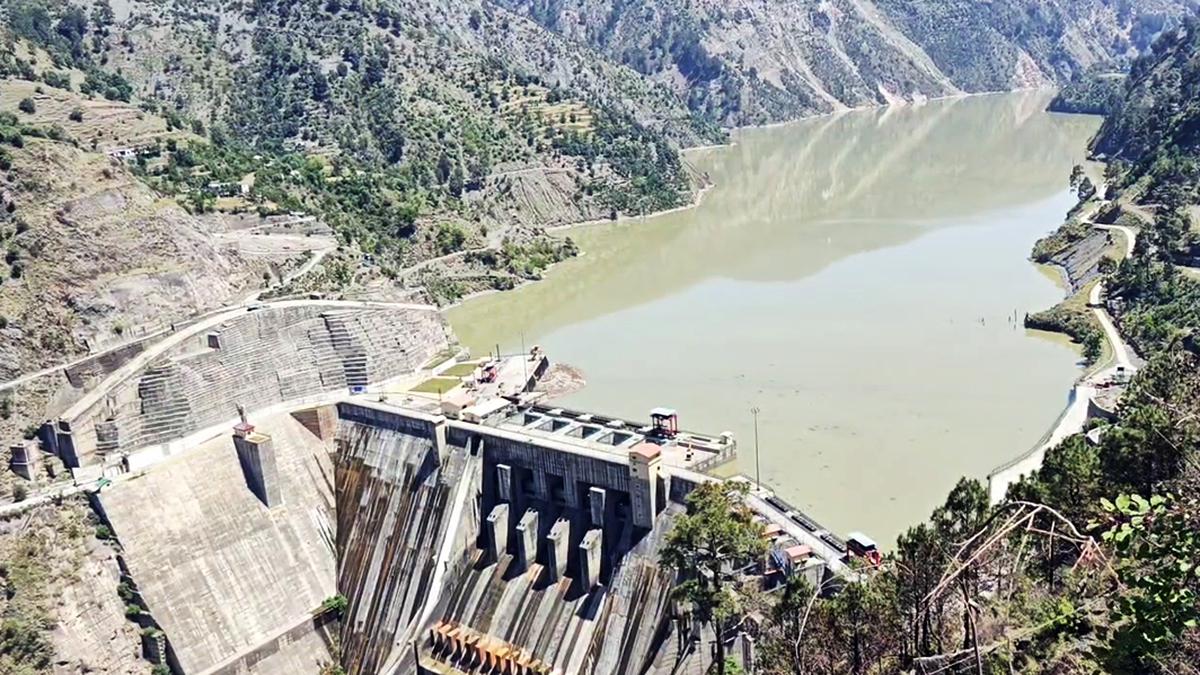In the picturesque tourist resort of Pahalgam in the Indian occupied Kashmir, an armed group called as The Resistance Front (TRF) reportedly killed 26 tourists, which India blamed on Pakistan, thus raising the specter of conflict between nuclear-armed neighbors, Pakistan and India. Without providing any evidence, New Delhi immediately accused Islamabad, claiming that Pahalgam attack had cross- border linkages. At the same time as the accusation of the attack in Pahalgam, India put the Indus Water Treaty (IWT) in abeyance, temporarily suspending its obligations under the World Bank brokered treaty. A terrorist attack inside Kashmir and a water treaty has no connection. Following nine years of negotiations, with the mediation by the World Bank, the treaty was signed as a key water sharing agreement between India and Pakistan after the expiry of Standstill Agreement (1948). The IWT allocates the Western Rivers (Indus, Chenab and Jhelum) to Pakistan and reserves the right of Eastern Rivers (Sutlej, Beas and Ravi) for India. Historically, this trans-boundary water sharing agreement has survived wars and hostility between Pakistan and India. The suspension of the IWT after the Pahalgam attack highlights India’s unilateral and whimsical approach towards bilateral matters. The IWT cannot be suspended by one party, its unilateral suspension not only undermines regional peace in South Asia but also highlights India’s disregard for the international law. The terrorist attack it reminds the international community that India’s projection of semblance of normalcy in Indian Illegally occupied Jammu-Kashmir (IIOJK) is a façade and the valley remains a disputed territory, requiring diplomatic solution as per the United Nation resolutions.
The knee-jerk threats over suspension of IWT by India are neither legal nor feasible. Article XII of the treaty explicitly states that alteration and modification in the treaty is not possible without the consent of both parties. Indus Water Treaty itself provides the framework that unilateral modification has no legal standing unless it is drafted, negotiated and ratified by both Pakistan and India. Moreover, customary international law asserts that unilateral suspension of treaty, which has indefinite duration like the Indus water, stands clearly in violation of international law. The binding nature of this treaty mandates the termination of the Treaty with the agreement of both states as well as the guarantor which is the World Bank. Under this treaty there is no provision for expiry or unilateral suspension of agreement. India is itself a downstream riparian on Brahmaputra that originates from China. Historically, this strategic reality has shaped India’s approach to respecting downstream rights of low riparian states. Therefore, unilateral suspension of Indus water treaty will project India as unreliable partner in other international negotiations and could make it vulnerable to blockage of water by China.
Furthermore, hydrological reality of Indus Basin undermines Indian ambitions of blocking the flow of water from Western rivers to Pakistan. The overall volume in Indus, Chenab and Jhelum during high-flow period of May till September would be far too large that could flood India’s own upstream regions. Though India has infrastructure like Ratle (850MW) and Kishanganga dam (330MW) on these rivers, yet these are run-of-the river hydropower projects that has limited storage capacity. The development of new infrastructure like dams and diversion projects on these western rivers will take years. India could face issues in construction of these diversion projects as limited sites for water storage are available on Western rivers like Chenab and Jhelum. The total storage capacity of India on Western rivers is 4.5 BCM, while Pakistan’s annual needs are above 120 BCM. Therefore, the financial and political cost would be huge for India. As Pakistan considers construction of storage sites on its rivers as an act of war.
However, more pressing concern would emerge for Pakistan in the dry season when the water flows across its basin are lower. With the suspension of Indus Water Treaty, India has raised uncertainty for Pakistan’s irrigation system. Country’s irrigation system is largely dependent on predictable timing of flow from its Western rivers. If there comes a change in its rhythm, Pakistan’s water system will begin to fray. Indus delta is already shrinking given country’s depleting water resources. Shortfall or shift in flow of water unfolds new layer of uncertainty for Pakistan which is already a water scare country.
Suspension of IWT did not come out of nowhere. Since the last decade, validity of this treaty has been challenged by India. Since the Uri attack in 2016, India has been linking water to the broader security narrative. After the attack in Pulwama in 2019, India threatened to suspend flow of water to Pakistan. However, the Indus Water Treaty was not suspended at that time. The recent declared suspension of the treaty highlights escalation in hydro politics of the Indus Basin. However, both countries cannot afford to let Indus Basin become a collateral in a political fight.
India must abide by their international commitments and collaborate within the Indus Water treaty framework to address its concerns. This trans-boundary agreement has endured numerous challenges and should not be suspended on mere suspicions. The IWT serves as safety net ensuring a baseline of communication and collaboration in time of crisis between Pakistan and India. With its suspension, the bilateral relationship between Pakistan and India risks entering uncharted territory. Finally there is no possible connection between a terrorist incident and a water treaty or any international agreement.

Table of Contents
ToggleNawal Nawaz
Nawal Nawaz is a research assistant at Center for International Strategic Studies, Islamabad and an M Phil Scholar in Strategic Studies from National Defence University, Islamabad













